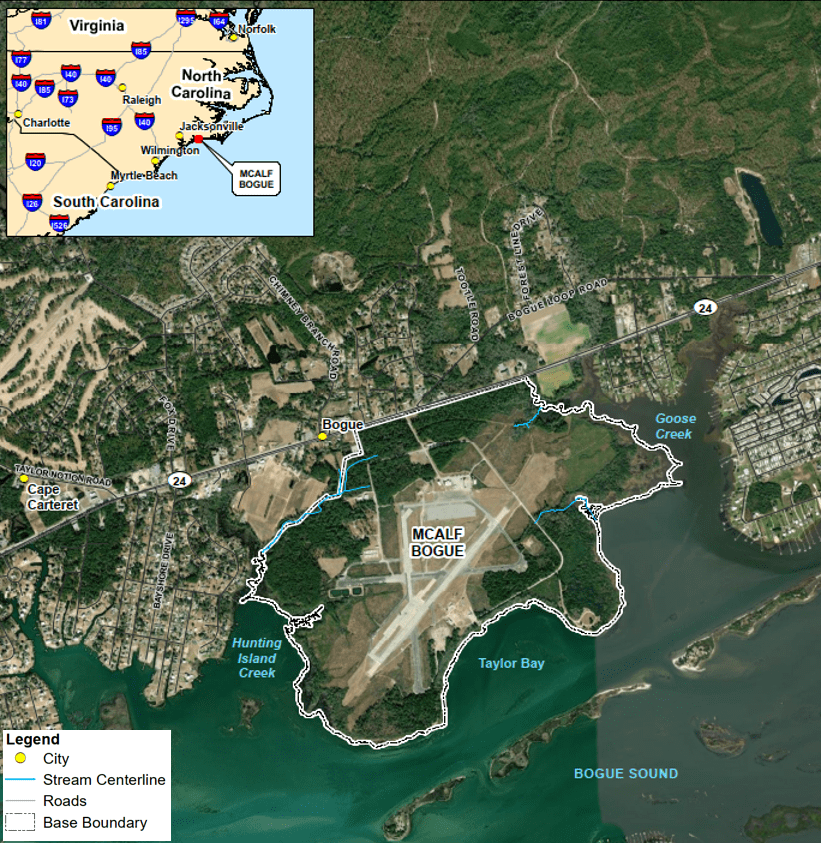Reprinted from the Island Free Press
OCRACOKE — Fears of impending doom – again – for the N.C. Center for the Advancement of Teaching have been eased, for at least a week, with money for the program provided in the budget that the N.C. Senate recently passed. The N.C. House may release its version of the state budget this week, and it’s not known if money for the center will be included.
Supporter Spotlight
The almost 30-year-old professional learning program, known as NCCAT, for pre K-12 educators in the state has campuses on Ocracoke Island and at Cullowhee in western North Carolina. Gov. Pat McCrory had not included money in his budget proposal released earlier in the spring.
 The Ocracoke campus of the N.C. Center for Teaching Advancement is in a remodeled Coast Guard station. It and the main campus in western North Carolina are included in the N.C. Senate budget. Photo: NCCAT |
“It’s very encouraging to me, the fact that we’re in it (the Senate budget),” Richard Thompson, NCCAT’s interim executive director, said last week. “It could have been taken out completely.”
Thompson said that the proposed 2014-2015 Senate budget bill includes $3.2 million in non-recurring funds, the same as last year’s appropriation. Initially, last year’s Senate budget had stiffed NCCAT.
Before this year’s budget is final, it must be reconciled with the House budget, approved by both chambers and signed by the governor. He said there is support for NCCAT in both the Senate and the House, so he said he is “cautiously optimistic.”
State Rep. Paul Tine, a Democrat whose district includes Hyde County, said that it is too soon to make predictions about the House budget. It could take two weeks or more, he said, until it has a proposed spending plan nailed down.
Supporter Spotlight
“There are so many moving parts right now,” he said last week. “We should know better next week how things are looking.”
If funds are not provided for NCCAT, the western campus that opened in1985 would be absorbed by nearby Western Carolina University, Thompson said. But the fate of the Ocracoke campus would be less certain.
 Rep. Paul Tine |
After the Coast Guard vacated the Ocracoke station in 1996, the three-story, 17,000-square-foot station was virtually neglected for about five years. When the 1.55-acre property and buildings were transferred from the federal government to the state, the understanding was that the site would be used for educational purposes.
Thompson said that the station could also be used by the state for transportation or environmental purposes. Otherwise, ownership would revert back to the federal government.
A state-funded $7 million renovation remade the interior space with 24 bedrooms, conference rooms and dining areas, while maintaining the authentic appearance of the 1940 station. The campus opened for its first seminar in 2007. The centered had also partnered with the N.C. Coastal Federation to stabilize the property with a living shoreline. Volunteer teachers and students planted marsh grasses and other upland vegetation, allowing a beautiful and healthy place to continue learning.
Perched on the edge of Silver Lake Harbor with Pamlico Sound in its backyard and a view of the village in its front, the building is considered prime real estate, and villagers were happy that NCCAT took it over. But it has proven to be one of those neighbors that have kept its distance from village life.
John Fletcher, the Hyde County commissioner from Ocracoke, said he has not heard anyone mention any concern about the future of the NCCAT campus. Not that residents don’t appreciate the business the teachers bring to the island stores, or the outside exposure for the island, he said.
“Everybody thinks it’s an asset to the island,” he said.
Whatever the state decides, Fletcher said, the building should remain occupied.
 Richard Thompson |
“They need to do something to keep it up and make it a useful facility,” he said. “It’s a valuable piece of property. It doesn’t need to sit there.”
As a condition of funding in the Senate bill, NCCAT must provide performance measure results and recommendations to improve the efficiency and effectiveness of the program, in addition to updating its report submitted last year to the legislature.
After McCrory’s budget proposal was released with no funding for NCCAT, a petition was started asking the governor and the legislative leaders to fund the program, which they say gives more than 1,000 thousand educators a year the support and resources they need to be effective in the classroom. As of Friday, more than 1,900 people had signed.
“As I teach a specialty subject –music – there is often no budget or time allotted for in-service training appropriate for my discipline,” wrote one signer, Dorlene Evans from Kill Devil Hills. “NCCAT provided the single-most, significant professional development in my area I have attended in 35 years of teaching.”
In 2011, NCCAT’s budget was slashed 50 percent, resulting in scaled-down programming that is now primarily focused on digital learning, beginning teacher support, teacher leadership and teacher effectiveness.
The program employs a total of 45 positions, Thompson said, although not all are filled. Of those, 10 are allocated for Ocracoke, which also shares resources with Cullowhee.







